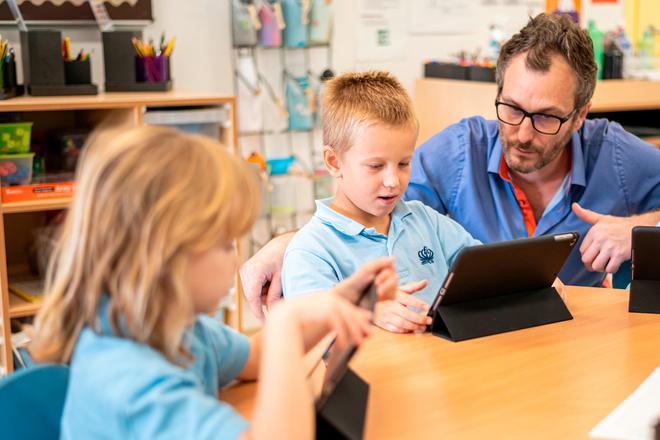In today’s fast-paced world, anxiety is no longer an unfamiliar term. It affects more people than we see, our youngest generation not being an exception. Anxiety in children is a growing concern and as parents and caregivers, understanding what anxiety is and learning how to manage is crucial for maintaining the wellbeing of our children.
The Anxious Generation: A growing concern
In recent years, the prevalence of anxiety among children and adolescents has been on the rise. Even before the Covid-19 pandemic, growing numbers of young people were experiencing clinical levels of anxiety. Around 11.6 percent of kids between the ages of 3 and 17 had anxiety in 2012. During the pandemic, those numbers nearly doubled, with 21 percent of youth now struggling with anxiety worldwide. Here at The British International School Bratislava, we see anxiety being on the rise firsthand, with our students struggling especially with social anxieties after the pandemic. These staggering statistics emphasize the importance of addressing this issue proactively.
The importance of early recognition and intervention
Early intervention is the key when it comes to childhood anxiety. Understanding childhood anxiety begins with recognizing its signs. Anxiety in children can manifest in various ways and the symptoms may differ depending on the child’s age. Some common signs and symptoms of anxiety in young children may include stomachache, clinging, and outbursts of unexplained crying. For older children, symptoms may include nausea, avoidance of social situations, perfectionism, irritability, constant worrying about the future, and others.
Coping strategies for parents and children
Helping children manage anxiety involves equipping them with effective coping strategies. Here are some tips for parents and carers to try:
Create a safe and supportive environment
It is essential to create a safe and supportive environment for children to express their fears and concerns. Parents, caregivers, and teachers should listen to children’s worries and validate their feelings.Teach coping skills
Teaching children coping skills can help them manage their anxiety. Simple techniques, such as breathing exercises, mindfulness, positive self-talk, or journaling, can be effective ways to reduce anxiety.Encourage healthy habits
Encouraging healthy habits, such as regular exercise, a healthy diet, and good sleep hygiene, can help reduce anxiety in children.Practice relaxation techniques
Practicing relaxation techniques, such as yoga or meditation, can help children relax and let go of the built-up tension.Create a “Worry Box”
This can be a tangible or virtual space where children write down their worries and place them in the box. It symbolizes letting go of their concerns for a while and brings some relief.Morning Mental Health check-ins and breaks
At The British International School Bratislava, we use different ways of morning mental health check-ins to monitor the emotional wellbeing of students. By spotting when they are anxious, angry, or upset straight away, we can put needed strategies into place earlier. They can ask for a time off in the relaxation room or chat with a teacher or school counsellor if needed.
Seeking professional help and community support
Mentioned strategies may be beneficial; however, it’s also crucial to seek out professional help if needed. If your child’s anxiety manifests in regular physical symptoms or causes significant distress, which interferes with their ability to participate in daily routines, seek help from a specialist. Anxiety disorders can be treated through counselling, cognitive-behavioral therapy, or anxiety medication, which can help to alleviate the symptoms.
A lifelong investment
Understanding and managing anxiety in children is an investment in their future wellbeing. By equipping children with the skills to navigate anxiety, we are nurturing resilience and enhancing their future functioning as well. We regularly launch articles to increase the prevention and emphasize that emotional wellbeing plays an essential role in the lives of our young learners.
Natália Hanulíková and Katarína Skyvová are School Councellors at the British International School Bratislava.
Author: Natália Hanulíková, Katarína Skyvová


 Anxiety in children can manifest in various ways and the symptoms may differ depending on the child’s age. (source: The British International School Bratislava)
Anxiety in children can manifest in various ways and the symptoms may differ depending on the child’s age. (source: The British International School Bratislava)